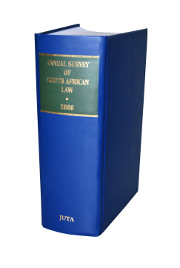Public International

Public International
Authors Hennie Strydom
ISBN: 978 1 48513 300 1
Affiliations:
Source: Annual Survey of South African Law, 2017, p. 1064 – 1091
Abstract
None

ISBN: 978 1 48513 300 1
Affiliations:
Source: Annual Survey of South African Law, 2017, p. 1064 – 1091
None

ISBN: 978 1 48513 300 1
Affiliations:
Source: Annual Survey of South African Law, 2017, p. 1092 – 1136
None

ISBN: 978 1 48513 300 1
Affiliations:
Source: Annual Survey of South African Law, 2017, p. 1137 – 1158
None

ISBN: 978 1 48513 300 1
Affiliations:
Source: Annual Survey of South African Law, 2017, p. 1159 – 1187
None

ISBN: 978 1 48513 300 1
Affiliations:
Source: Annual Survey of South African Law, 2017, p. 1188 – 1195
None